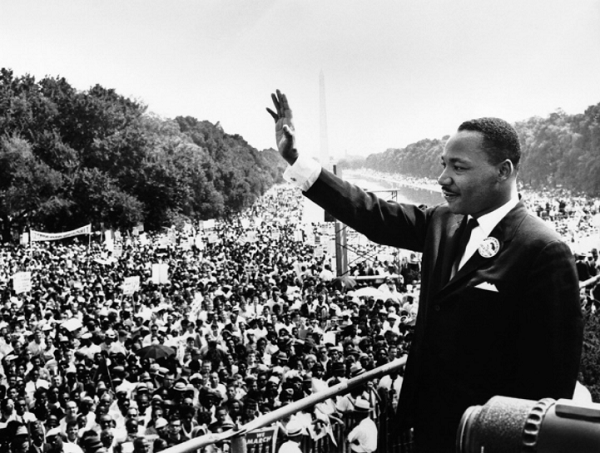
Today, there can be no doubt about the importance of Martin Luther King Jr.’s “I Have a Dream” speech.
His words—spoken over half a century ago during the March on Washington for Jobs and Freedom on August 28, 1963— continue to inspire and move people.
That day, King tapped into something extraordinarily powerful and expressed a vision so beautiful that a mere recording can still move many of us to tears.
Have you ever wondered where the power and sheer genius of that speech may have come from? And if it might contain a takeaway for our own self-expression?
First, let’s discuss what made this speech so special:
That special something wasn’t mere skill.
With his vivid language and strong connection to the audience, King was undoubtedly a great speaker. However, his experience alone does not explain the enduring appeal of “I Have a Dream.” King already had strong oratory skills before the March on Washington, yet the words he spoke during that event somehow rose above all the other speeches of his life.
While King’s oratory strength enhanced the delivery of his words, we cannot reduce the magic of those words to mere talent. A speech by a great speaker is not necessarily a great speech, unless it has a lasting impact on society.
That special something wasn’t only timing.
We could suppose that the power of King’s words comes from timing, namely the context in which it was given. The massive and engaged crowd that was in attendance that day, as well as the general cultural changes that were happening as a result of the Civil Rights Movement, all contributed to the power of King’s words.
So while it is a fair assumption that timing and context mattered, they were not the only contributing factors. Case in point: the March on Washington included speeches from a number of speakers (the “Big Ten”)—yet “I Have a Dream” stood out among all of them.
That special something wasn’t anything pre-planned.
The genius of King’s speech cannot be attributed to pre-planning. Surprisingly, King’s original draft did not contain the lines related to “I Have a Dream.” He had used those lines in previous speeches and his adviser Wyatt Walker told him not to use them again, calling them trite and cliché.
Toward the end of King’s delivery in front of the Lincoln Memorial, American gospel singer Mahalia Jackson (who reportedly sensed that his speech had fallen a bit flat) shouted to her friend from the crowd: “Tell them about the dream, Martin.” It was then that King departed from his prepared notes and started improvising, leaving us with the words we all recite today.
We can only speculate what would have happened if Jackson had not shouted out, or if King had ignored her request. His speech likely would have been much less impactful and as a culture we would have been deprived of some of the most powerful lines in recent history.
Isn’t it utterly fascinating that the words we now remember were not part of King’s script? That they were spoken in the moment, and only at an outside suggestion? That King had spoken about his dream in previous speeches but that everything came together much more powerfully this time around?
This is what genius is.
We so often think of genius as something that resides in a person—in this case, King. However, we could say that true genius is actually channeled through people and thus transcends them.
Throughout the speech, King had his great oratory skills and experience, alongside his preparation for the speech itself. Yet it was when he let go of his script and opened himself up to the inspiration of the moment that the real magic happened.
At that point, he became a mouthpiece, a channel for the united vision of the hundreds of thousands of people who had gathered for the social change that was happening, and for the highest aspirations of this country.
Just like Jackson, who sensed the collective need to hear about “the dream,” King did not shy away from his role in this moment. He rose to the occasion and opened himself up to what wanted to be expressed through him. His background, his skills, and his preparation were all valuable assets in this process.
While throughout their lives most people will not find themselves in a situation that is as high-stakes as the one just described, the principles we can learn from it apply regardless of how we choose to express ourselves. We are at our best when we let go of the idea that genius relates to something we do, and instead realize that genius is something that is done through us—which often requires letting go of our script.
~
If you would like support to explore what gifts want to come through you, I invite you check out my free guide here.
~
~
Author: Bere Blissenbach
Image: Wikimedia Commons
Editor: Nicole Cameron
Copy Editor: Emily Bartran


 Share on bsky
Share on bsky




Read 0 comments and reply